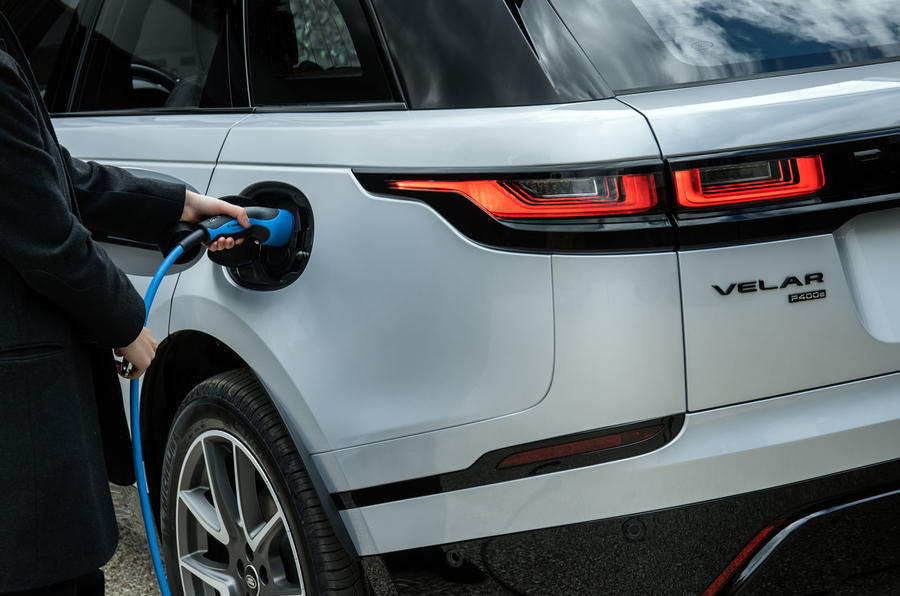New figures have revealed that the price of charging an electric car using a rapid public charger has risen by more than 42% in just four months, caused by the rising wholesale costs of gas and electricity.
It now costs £32.41 on average to charge a 64kWh family car such as the Kia e-Niro Long Range to 80% from empty via a public rapid charger, up £9.60 (£22.81) from May and £13.60 (£18.81) from the same time last year.
This is due to the average cost to charge per kilowatt hour, which is now 63.29p, up from 44.55p in May and 36.74p in September last year, the RAC has revealed.
The rising cost has been mirrored at ultra-rapid charging points (100kW-plus), which now charge an average of 63.94p per kilowatt hour, up from 50.97p in May and 34.21p in September last year. This means that charging a 64kWh family car to 80% costs £32.74, up £6.64 (£26.10) from May.
Charging firms have expressed concerns over the rise – caused in part by the UK’s decision to look at other sources for its gas and oil following Russia’s invasion of Ukraine – arguing that they can no longer shield consumers from the price rises.
Instavolt has argued that the rise is due to the 20% VAT imposed by the government on public charging, compared with the 5% on home charging, adding that it could offer prices as low as 58p per kilowatt hour if home charging VAT rates were matched.
“We reiterate our commitment that if the public charging rate is reduced, the benefit will be passed back to consumers immediately,” said a spokesman.
This point is supported by Osprey CEO Ian Johnston, who previously told Autocar: “There is a cap that is protecting consumers at home, but there is no such cap for private businesses and we are buying energy at unseen levels at the moment.”
“We are trying to protect customers where we can but clearly we can’t run the network at a loss.”
However, one firm, Ionity, confirmed that despite the rising costs, it won’t be making any price rises yet and “currently have no future increases planned”.
Another worry from the RAC is that the price hike could put off potential buyers, hindering the government’s plan to ban the sale of all new petrol and diesel cars by 2030.
But Johnston disagrees, previously telling Autocar: “I think for the people who are currently making the decision to switch, the list of reasons to move to an EV are long and proven, and it is still – in many cases – cheaper than driving petrol or diesel [vehicles].
“I don’t believe it is going to slow down the transition to electric at all, but it does mean that for those people who rely on public charging, including fleets, it will be more expensive.”










Join the debate
Add your comment
And as the years roll by, and there are less and less ICE Vehicles on the Road, how, where are whoever get into power going to replace one of the high test Taxed luxuries we have, we need, we can't not have?
Speaking of Stats just how many miles will be completed using power from a source charging 7 times more than the overnight rate or twice that of the home rate, very few I'd suggest. Any ev owners wish to comment on how many Kws they get away from their home and workplace compare to 67p a kw road side chargers.
Still cheaper than running a petrol or diesel car.
Maybe, but, other essential things for living?, maybe Ev's will come down in price?,ha ha!
I think you need to do some more maths. at 3 miles per KW thats 21ppm from a public charger. Petrol seems to be about £1.60 a litre around here, which means 35mpg or better is cheaper. And those still buying petrol are making a very generous contribution to the government, no doubt to cover the incentives given to the EV driver.
Of course charing at home is still cheaper than buying petrol, but would it be if the tax were the same?
I honestly dont understand how super efficient EVs can cost more per mile than old clunkers running on Dino juice, but do the maths, in many cases they are
I have a couple of evs a 30kwh Nissan Leaf that has free charging at work, and an old tesla s 85d with free supercharging which is charged off my PV panels on the roof when parked at home. The tesla has done 210000 kms and lost 5% range, I have just come back from a trip to the north of the artic circle in Norway from Geneva 9000 kms which cost 100 euros in fuel, Often free charging is suppled from hotels. I bought it at auction in 2019 and it still worth what i Paid for it. I have done the maths and i don't think any thermic cars that i have had over the last 30 years come anywhere near close in costs. 450bhp and 0-60 in 4.5 sec thrown in for good measure too. only bad side is eats tyres and build qualty is not great on the Tesla as it is an old one.
I Have had nissan leafs for 5 years and all they need is tyres windscreen wipers/ fluid and cabin air filter, this with the free work charging make them unbeatable for a daily commute, although not the most exciting ev.
Good write up, shame that some luddites ignore such exmaples